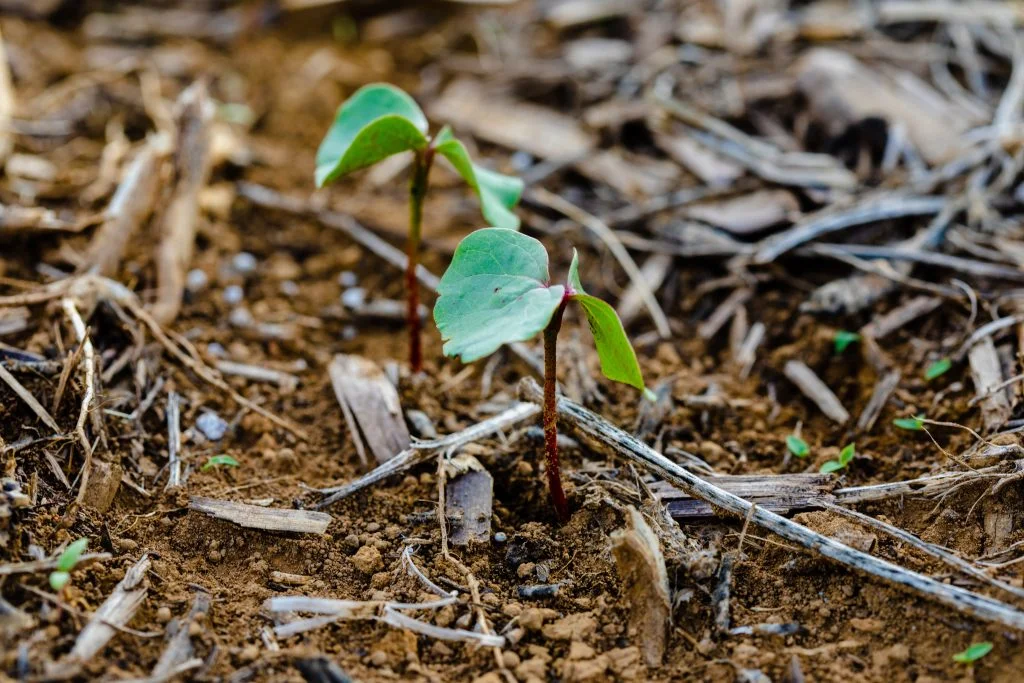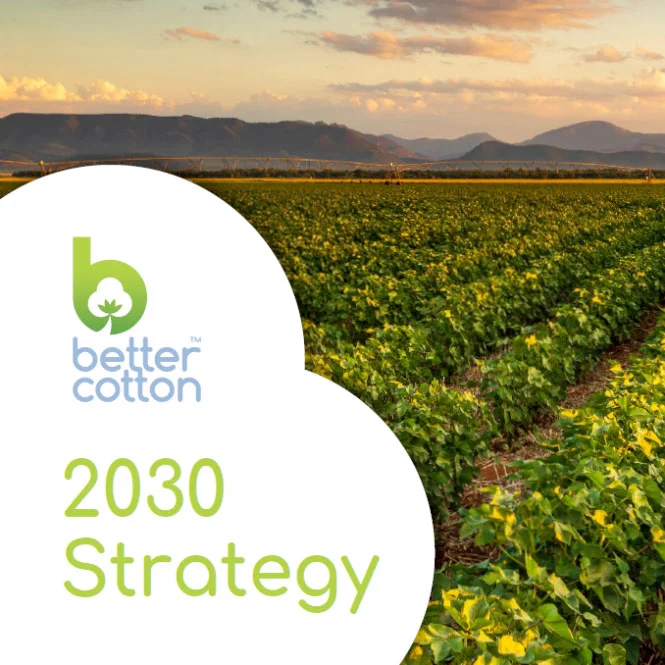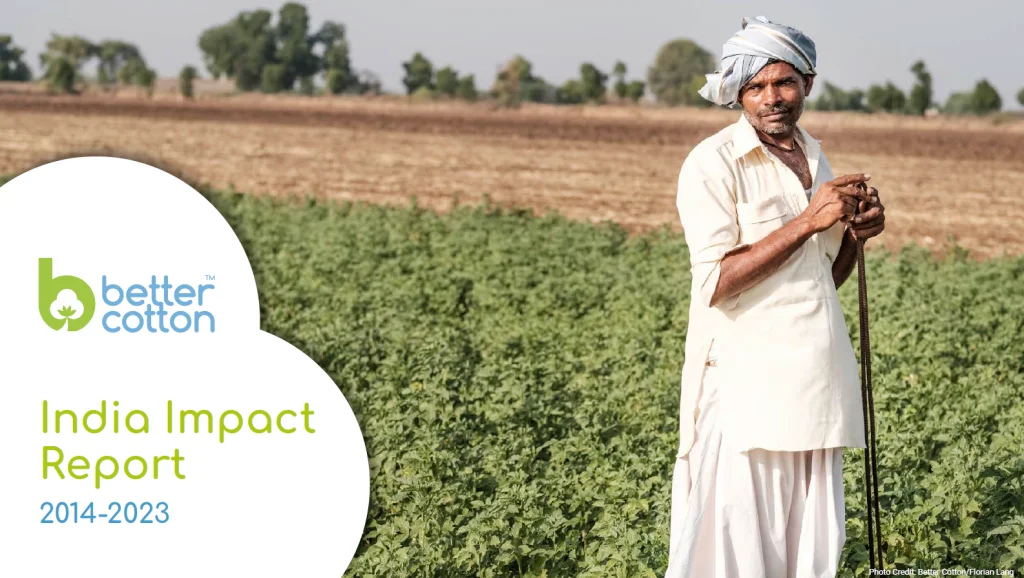- Who we are
- What we do
In just over 10 years we have become the world’s largest cotton sustainability programme. Our mission: to help cotton communities survive and thrive, while protecting and restoring the environment.
- Where we grow
Better Cotton is grown in 22 countries around the world and accounts for 22% of global cotton production. In the 2022-23 cotton season, 2.13 million licensed Better Cotton Farmers grew 5.47 million tonnes of Better Cotton.
- Our impact
- Membership
Today Better Cotton has more than 2,700 members, reflecting the breadth and diversity of the industry. Members of a global community that understands the mutual benefits of sustainable cotton farming. The moment you join, you become part of this too.
- Associate Membership
- Civil Society Membership
- Producer Organisation Membership
- Retailer and Brand Membership
- Supplier and Manufacturer Membership
- Find Members
- Member Monitoring
- Better Cotton Platform
- myBetterCotton
- Resources – Better Cotton Conference 2022
- Complaints
- Whistleblowing
- Safeguarding
- Get Involved in the Better Cotton Programme
- Thank you for contacting us
- Better Cotton’s Data Privacy Policy
- Log in
- Members’ Area
- Request for Proposals
- Better Cotton Cookie Policy
- Web Reference
- Measuring Cotton Consumption
- How to Implement the Chain of Custody Standard
- Resources – Better Cotton Conference 2023
- Certification Bodies Old
- Latest
- Sourcing
- Latest
The founding premise of Better Cotton is that a healthy sustainable future for cotton and the people that farm it is in the interests of everyone connected with it.
Let us help you find what you’re looking for
Results for {phrase} ({results_count} of {results_count_total})Displaying {results_count} results of {results_count_total}

By Emma Dennis, Senior Manager of Global Impact, Better Cotton
Regenerative agriculture, a key theme at the upcoming 2023 Better Cotton Conference, is a term that has been gaining a lot of traction in recent years, as we look to restore the environment. Despite this growing attention, however, the concept is still in a state of evolution.
While regenerative agriculture is a relatively recent term, the practices that it describes are often centuries old, and many Better Cotton Farmers already incorporate aspects of regenerative agriculture in their farming. In order to ensure that we are recognising these activities, our updated Principles and Criteria (P&C) has an explicit focus on the key tenets of regenerative agriculture.
In this blog, I will explore these recent updates to our P&C, outlining Better Cotton’s approach to regenerative agriculture and sharing what we are planning in the coming months.

Better Cotton’s Approach to Regenerative Agriculture
At Better Cotton, we embrace the core idea of regenerative agriculture that farming can give back to, rather than take from, nature and society. Our approach to regenerative agriculture puts a strong emphasis on connections between people and nature, highlighting the two-way dependency between sustainable farming practices and sustainable livelihoods. The ability of regenerative approaches to both reduce emissions and sequester carbon is significant, and of key importance in our approach.
Our unique approach works off four main premises:
- Regenerative agriculture is to be seen in the context of continuous improvement rather than as an end state
- Regenerative agriculture can be a solution for farming systems of all types and sizes, including smallholders. It also goes beyond cotton and needs to be considered across whole farming systems
- Regenerative agriculture needs to be context-specific and centre farming communities at the core of the approach
- To move substantially towards regenerative agriculture, a systemic change and major investments are needed
Regenerative Agriculture in the Better Cotton Principles and Criteria
Our programme focuses on the outcomes of regenerative agricultural practices, such as improved soil health, increased biodiversity and water efficiency, and the improved social and economic well-being of those involved in farm-level activities (including improved working conditions and better inclusion of women and people in vulnerable situations and/or facing exclusion).
These outcomes are supported by Version 3.0 of the P&C, the revision of which ensures our P&C remain an effective tool to deliver sustainable positive impacts at field level. Version 3.0 includes regenerative practices which are relevant in all cotton-growing countries, such as maximising crop diversity, minimising soil disturbance and maximising soil cover.
In addition to farming practices, the social element inherent to regenerative agriculture is integrated throughout, with a dedicated principle on improving sustainable livelihoods, a cross-cutting priority to strengthen gender equality, and a focus on farmer-centricity across all activities.
Regenerative Agriculture at the Better Cotton Conference 2023
The Better Cotton Conference 2023 provides us with a great opportunity to further explore the topic of regenerative agriculture, bringing together organisations from across sectors to share their perspectives and experiences in the field.
Regenerative agriculture is one of the four key themes of the conference, alongside sustainable livelihoods, climate action, and data and traceability. With a whole afternoon dedicated to the theme, we will explain how we currently tackle regenerative agriculture, and delve into the work we are doing to further incorporate these elements.
Kicking off the theme with a keynote address from Felipe Villela, Founder of reNature, an organisation that utilises regenerative agriculture to fight today’s most pressing challenges, we will also explore the difficulties for farmers and the responsibility of the supply chain to help find solutions to these challenges through farmer panels and interactive sessions. To find out more about the conference, head to this link.
Next Steps
Going forward, in line with our 2030 Strategy and existing commitments, Better Cotton will proactively work towards increasing the adoption of regenerative practices, including seeking ways to support farmers to better report on their progress, channel effective investments and enable all our value chain actors to better communicate on the topic. We will share updates on this work in the coming months.


